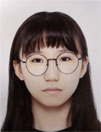Delay in health insurance coverage for new atopic medicine causes desperation among parents of young children

[An image of medication and a thermometer.Photo Credit to Pexels]
Parents across South Korea are voicing their frustration over delays in health insurance coverage for a new drug designed to treat infant and toddler atopic dermatitis.
The Severe Atopy Association has reported that children aged six months to five years currently fall outside the subsidy for this groundbreaking treatment, exacerbating the difficulties faced by these families.
Choi Jeong-hyun, vice president of the Severe Atopy Association, has shed light on these families' harsh realities.
"Over the last four years, health insurance benefits have significantly reduced severe atopic dermatitis treatment costs for adults and older children, but infants and toddlers are still desperately waiting in a coverage blind spot," Choi said.
Despite this, the Health Insurance Review and Assessment Service (HIRA) is still reviewing the matter, leaving many without urgent financial support.
Atopic dermatitis treatments like Dupixent from Sanofi, Rinvoq from AbbVie, Cibinqo from Pfizer, and Olumiant from Lilly are approved in South Korea, but only Dupixent is approved for children.
Other treatments are available only for severe cases in adults and teens, forcing parents of eligible infants and toddlers to bear the total cost.
Choi highlighted the financial strain, "Families often have to rely on less effective treatments like topical corticosteroids or systemic immunosuppressants. These either fail to control the disease or are unsafe for young children due to severe side effects."
The community's call for health insurance coverage is about more than just cost; it's about accessibility to safe and effective treatment.
The push for insurance coverage is supported by the medical community as well.
The Korean Academy of Pediatric Allergy and Respiratory Disease has actively lobbied for Dupixent's insurance inclusion for infants and toddlers.
They argue the drug's unique long-term safety profile, proven over five years, and its potential to manage the disease effectively make it a critical need.
The absence of viable alternatives further emphasizes the urgency of their plea.
The demand for coverage also mirrors the prevalence of the condition.
According to 2022 data, there are about 180,000 young children with atopic dermatitis in South Korea, with approximately 1,700 suffering from severe forms of the condition.
Despite these high numbers, the coverage for treatments remains frustratingly out of reach for many.
In April last year, Sanofi-Aventis Korea applied to HIRA for pediatric coverage for Dupixent, yet a decision is still pending.
In response, the Severe Atopy Association has ramped up its advocacy efforts, organizing petitions and social media campaigns to draw attention to this critical issue.
Over 400 individuals have joined their online petition, signaling widespread community support for this cause.
As Choiconcluded on a strong note: "The early years are crucial for every child's development. Ensuring access to effective atopic dermatitis treatment during this pivotal time is not just a medical necessity; it's a moral imperative."
As the debate continues, the hope remains that HIRA will soon recognize the gravity of the situation and extend health insurance coverage to these vulnerable young patients, offering relief to the families burdened by the high costs of essential medication.

- Shinah Youn / Grade 10
- Colburn School

![THE HERALD STUDENT REPORTERS [US]](/assets/images/logo_student_us.png)
![THE HERALD STUDENT REPORTERS [Canada]](/assets/images/logo_student_ca.png)
